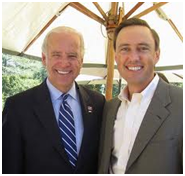Home » Verb Forms and Tenses » Modal Verbs » Modals for deduction and supposition – Present
Modals for deduction and supposition – Present
 |
|
When we are certain something is true, we use the verb: must.
For example: They must be colleagues.
(I don’t know for sure, but I’m 99.999% certain).
When we are certain something isn’t true, we use: can’t or couldn’t.
For example: They can’t/couldn’t be brothers.
(I don’t know for sure, but I’m 99.999% certain).
When we are not sure but we think something is possibly true, we use: may (not), might (not), could. We DO NOT use could not in this case.
For example: They may/might/could work together.
For example: They may not /might not like each other.
Click on the links below to learn more about modal verbs
Modals for Offers and Requests
Modals for Suggestions and Advice
Modals for deduction and supposition – Past